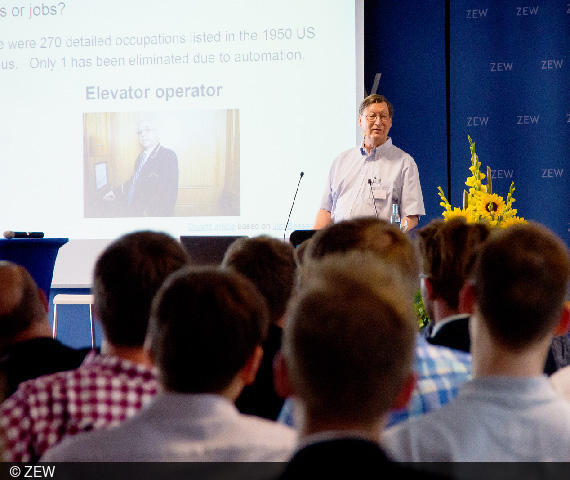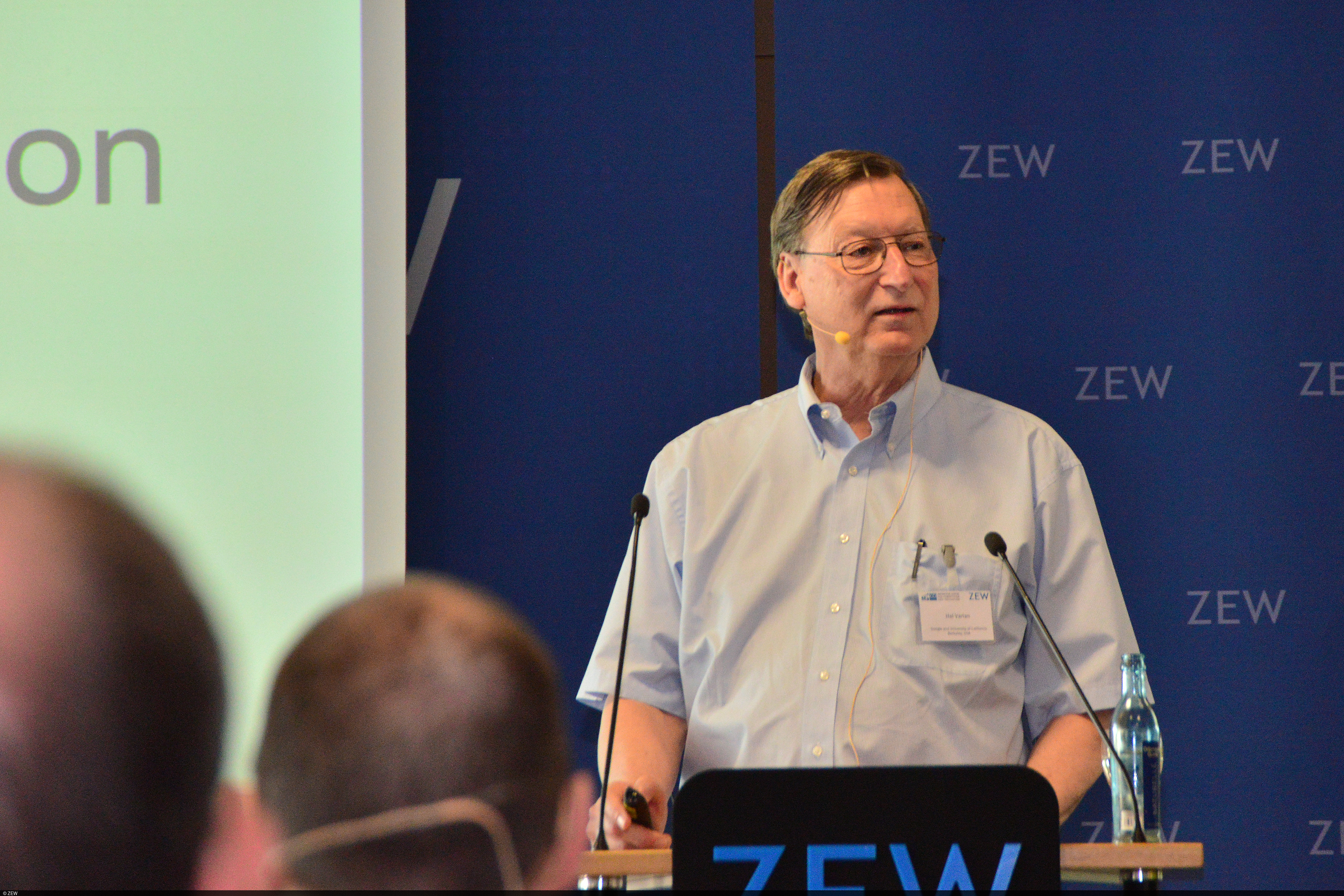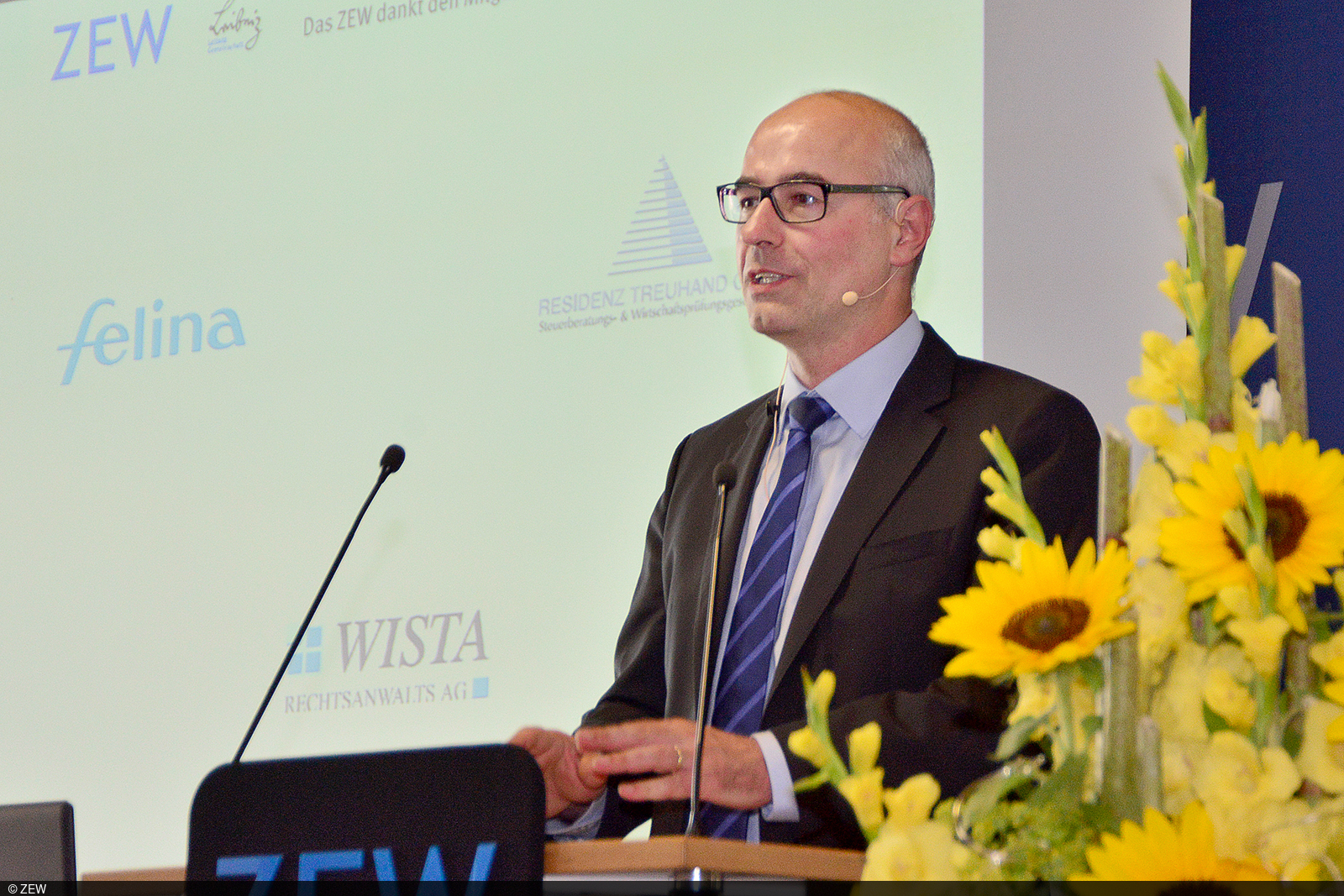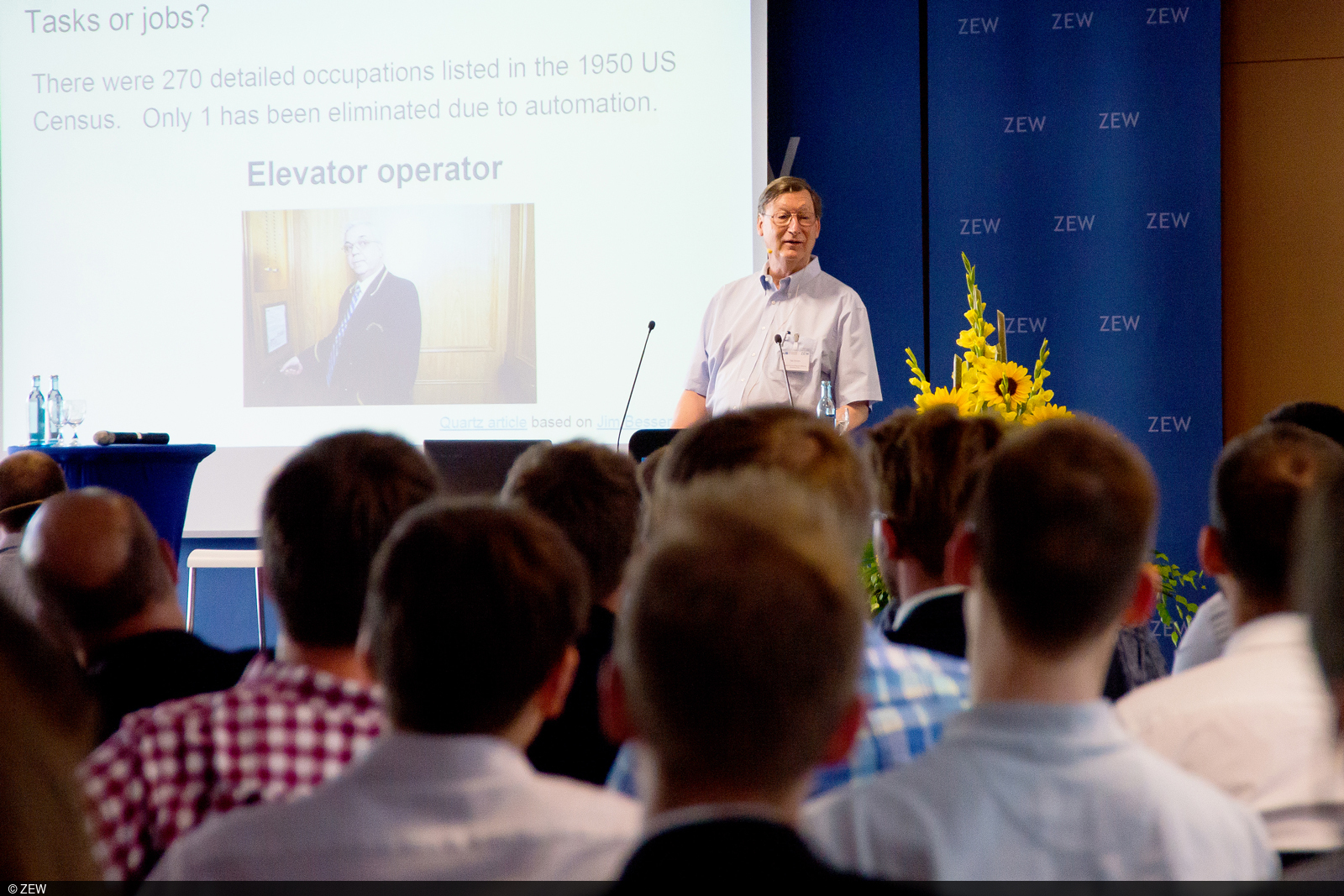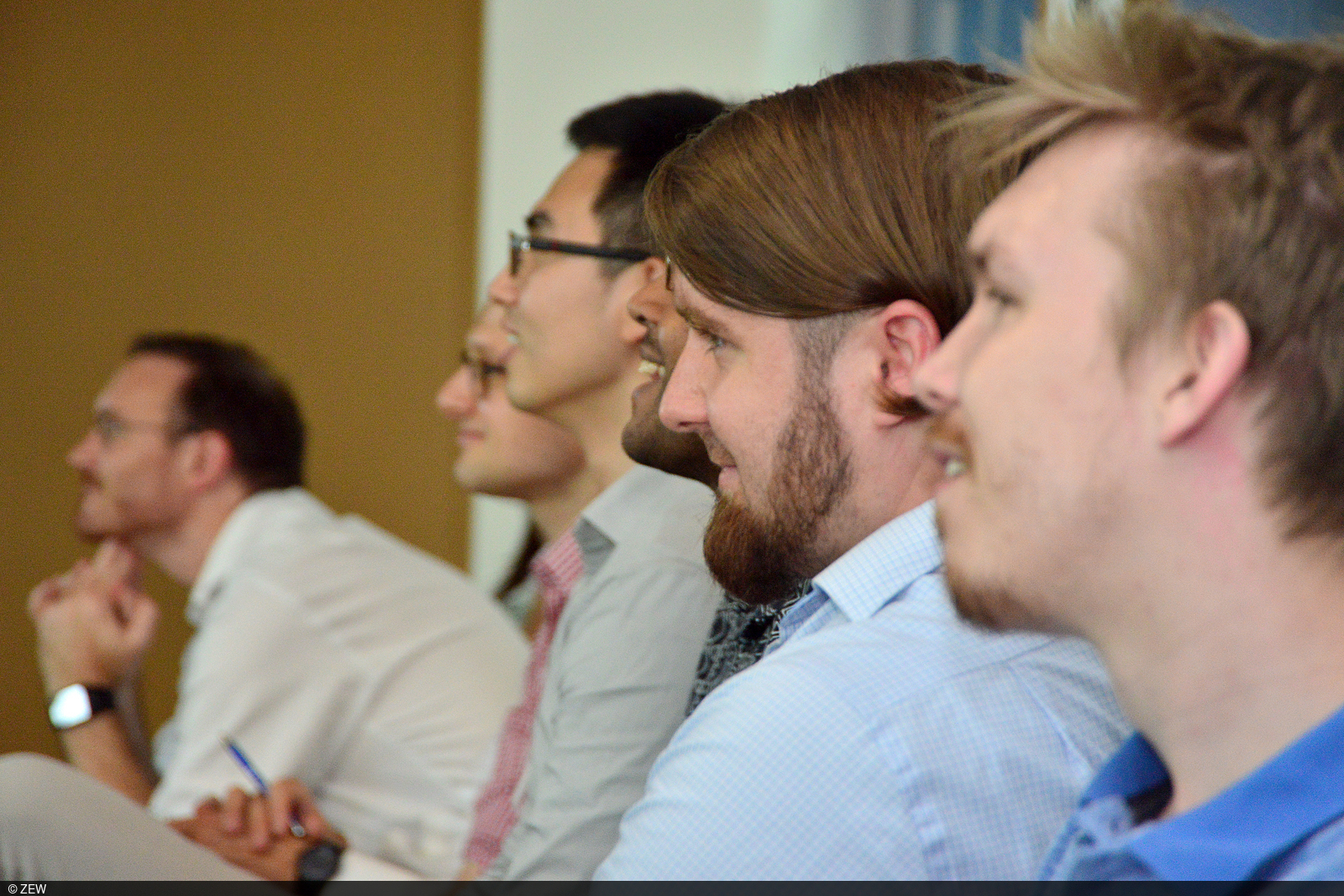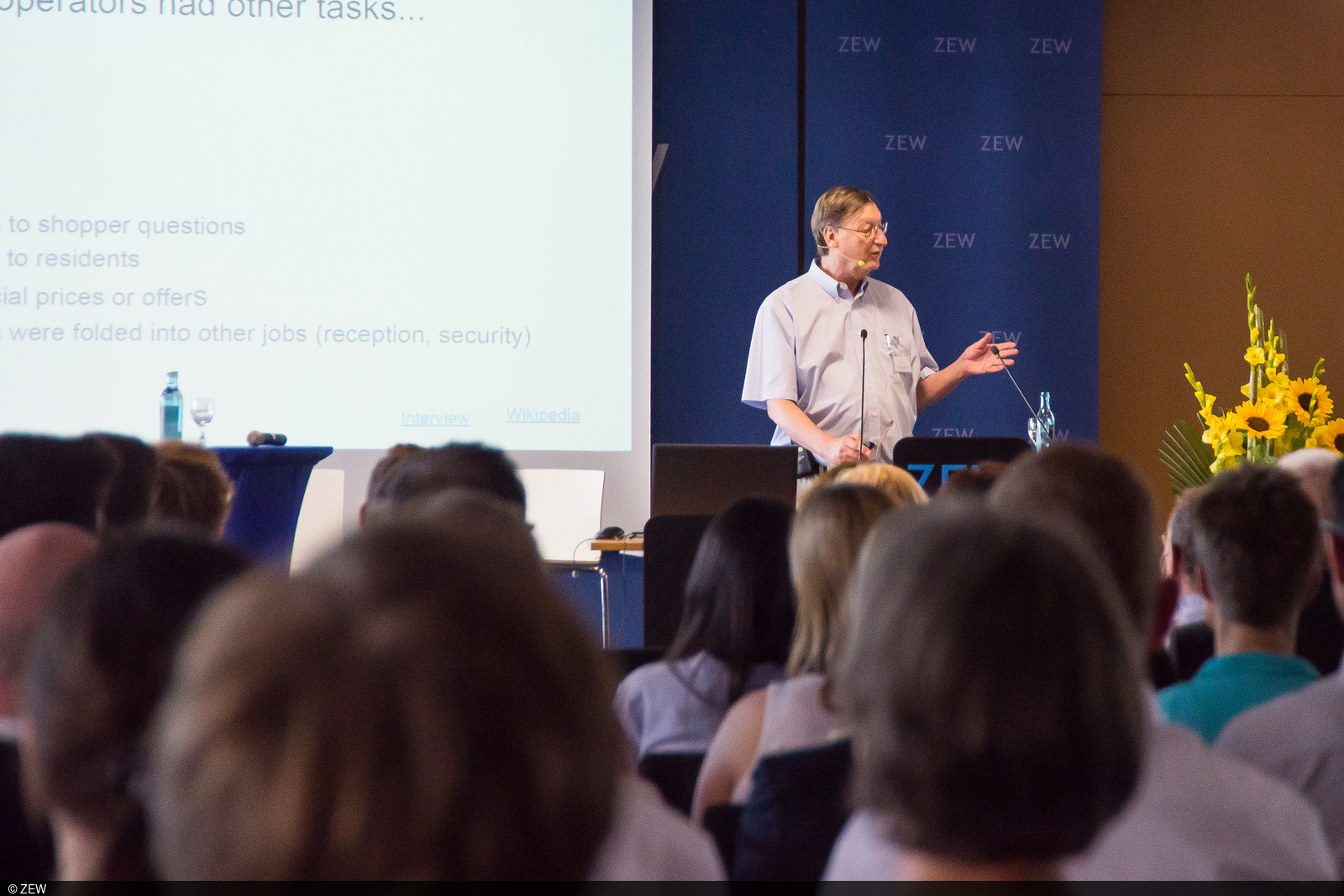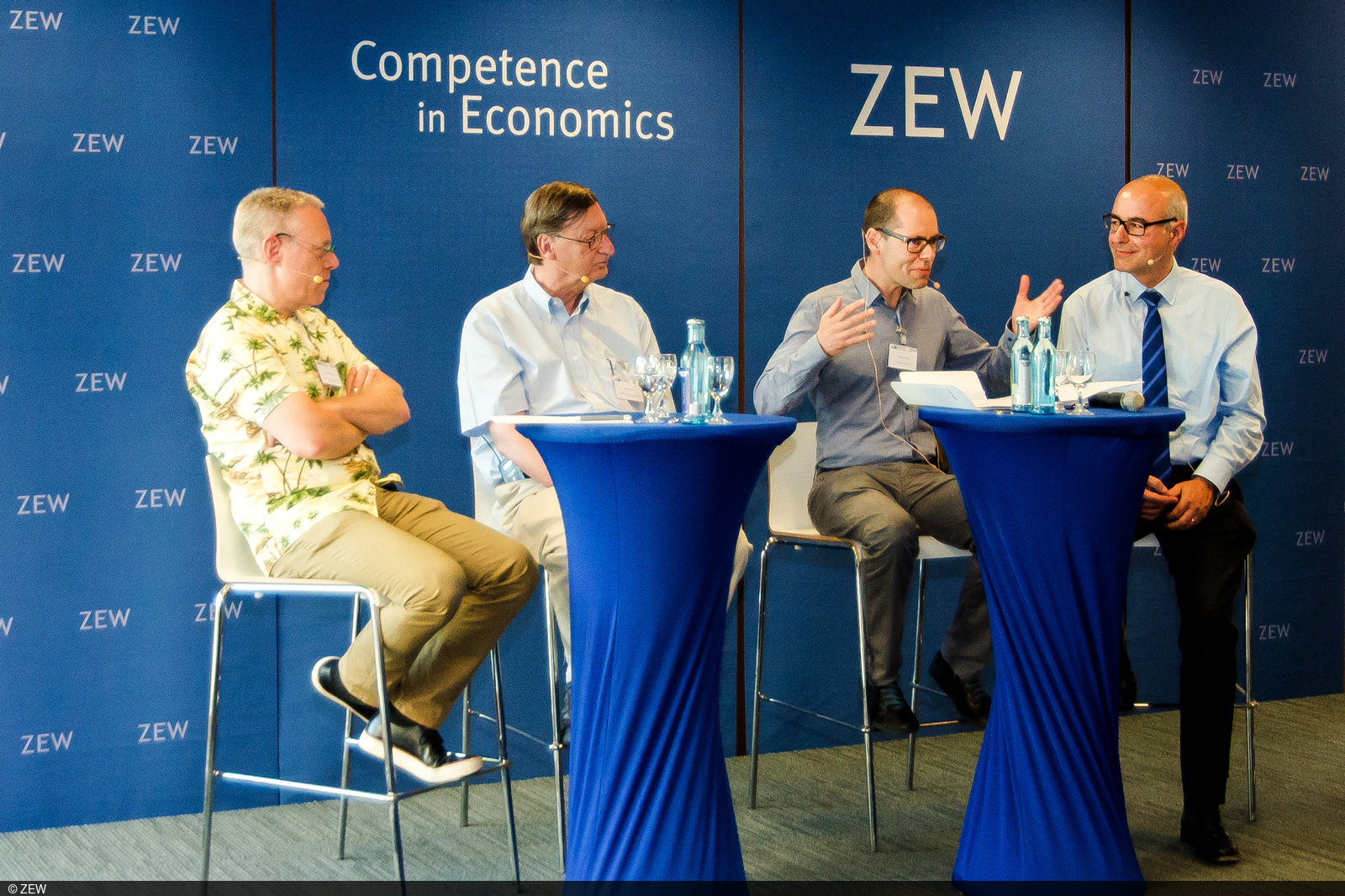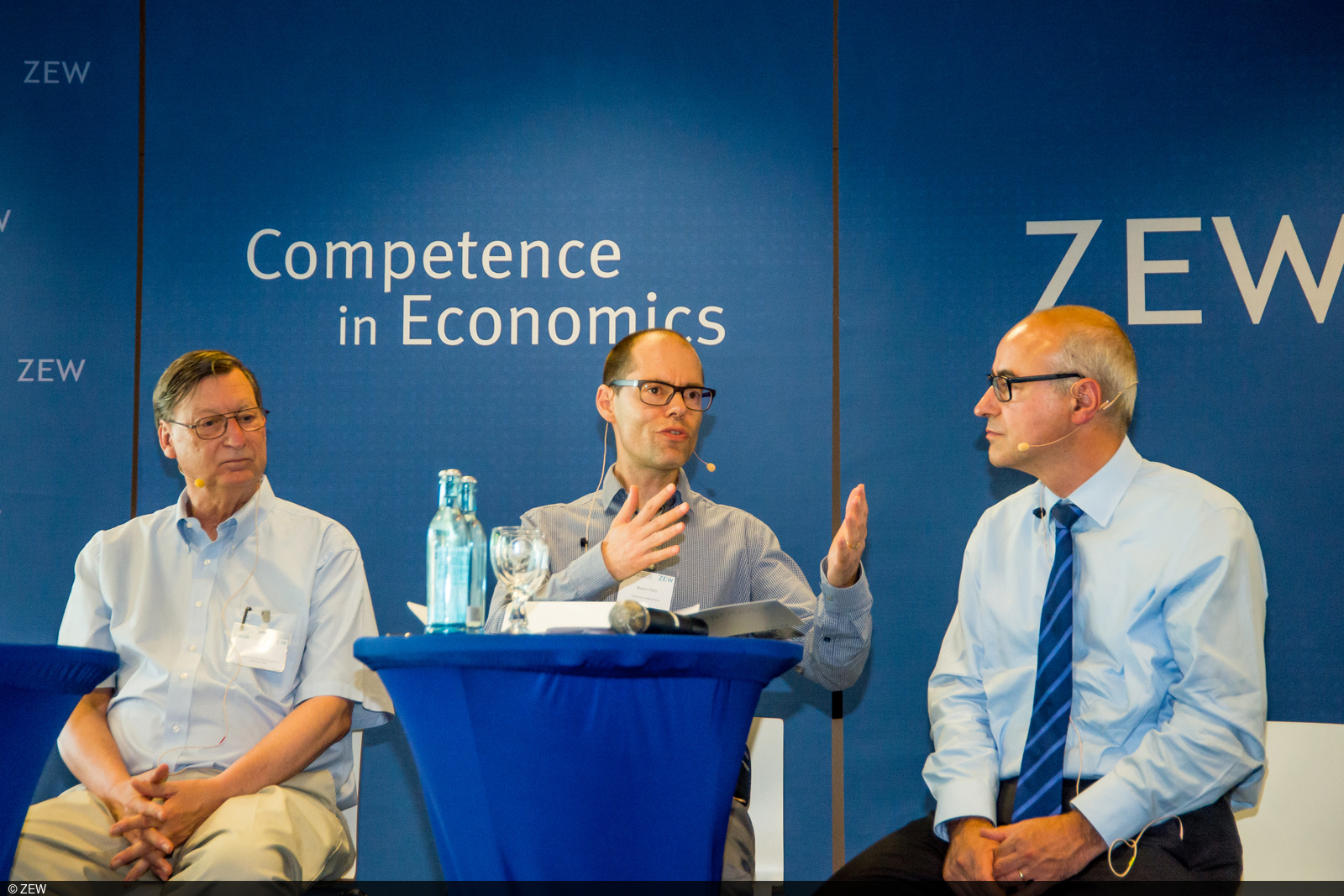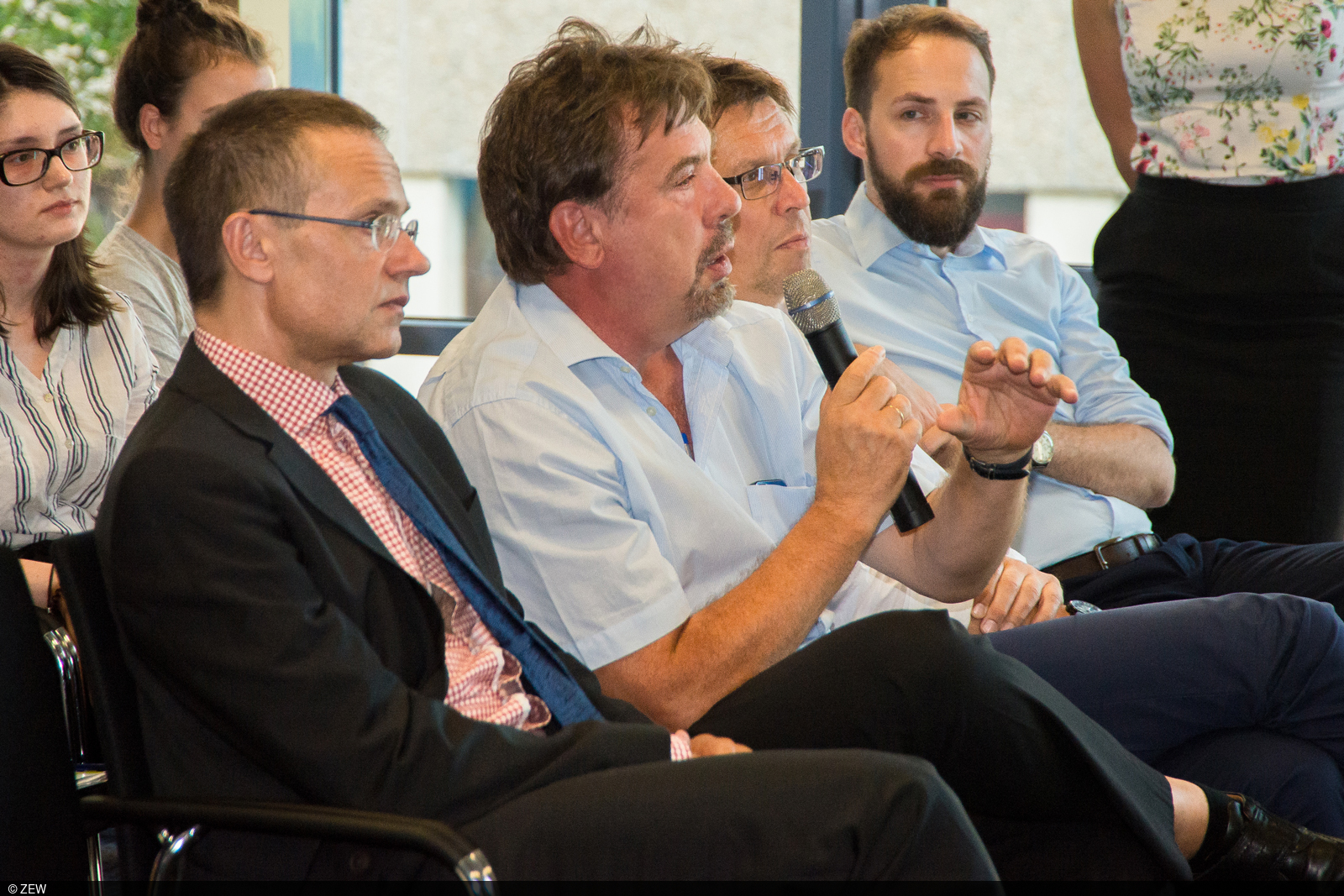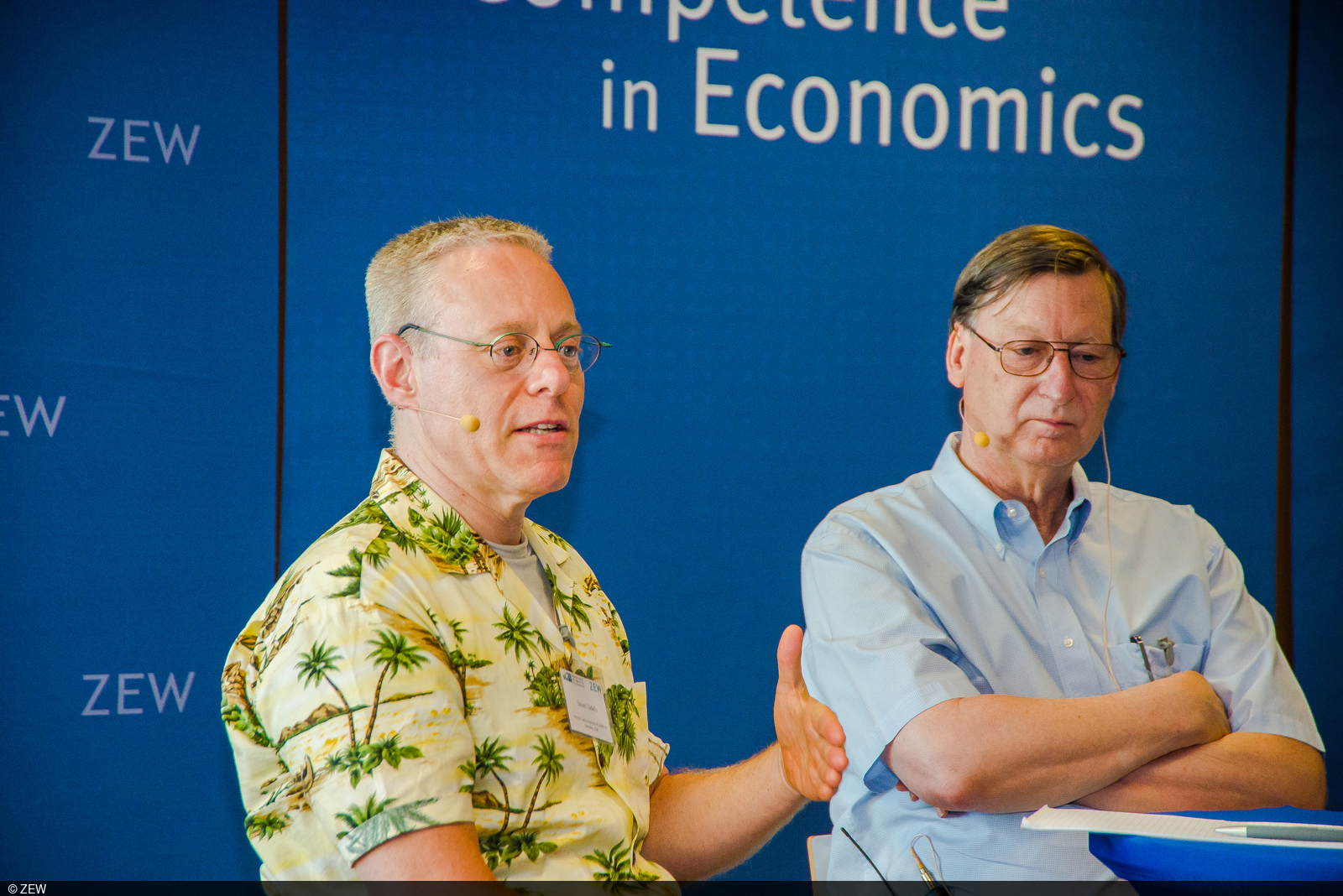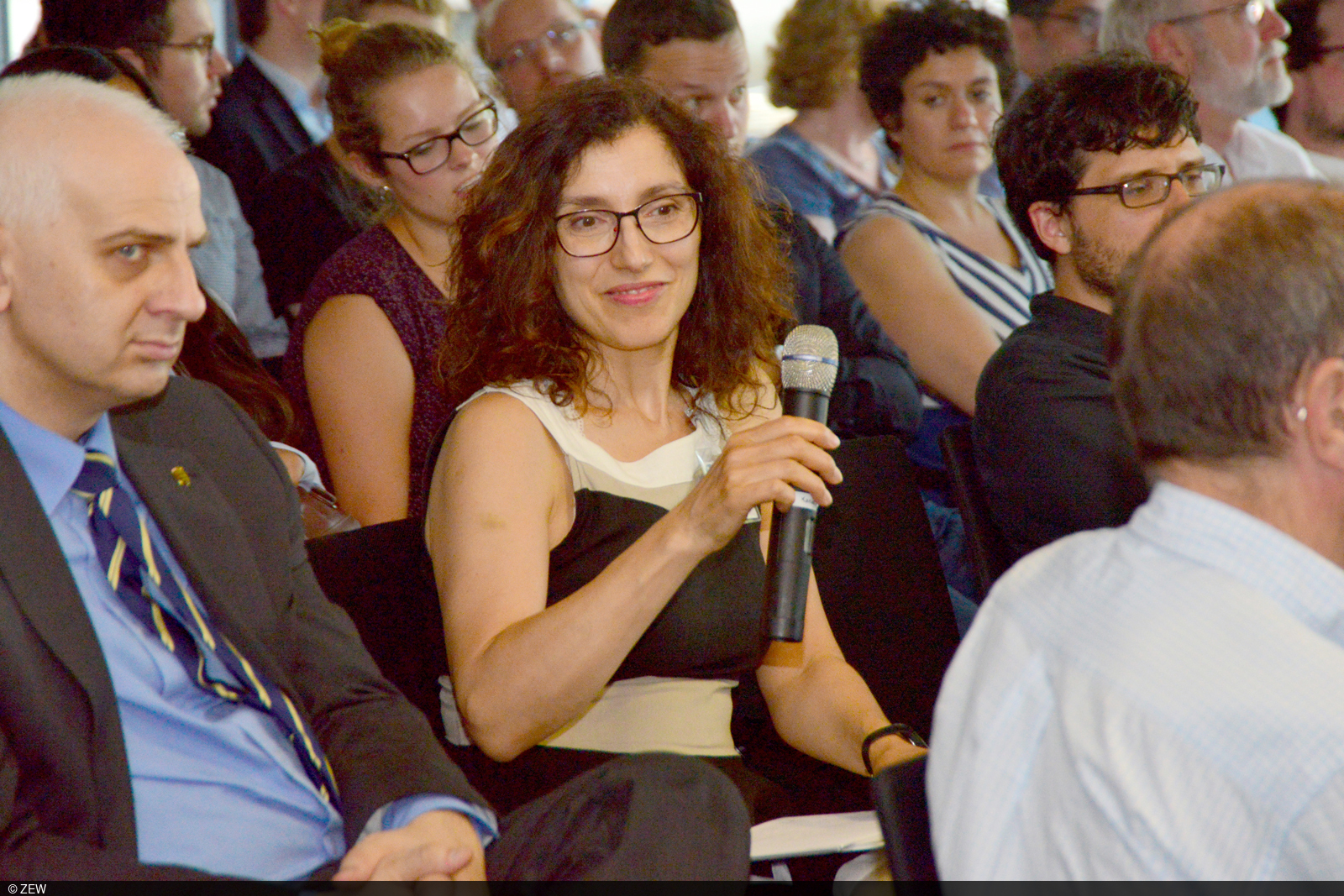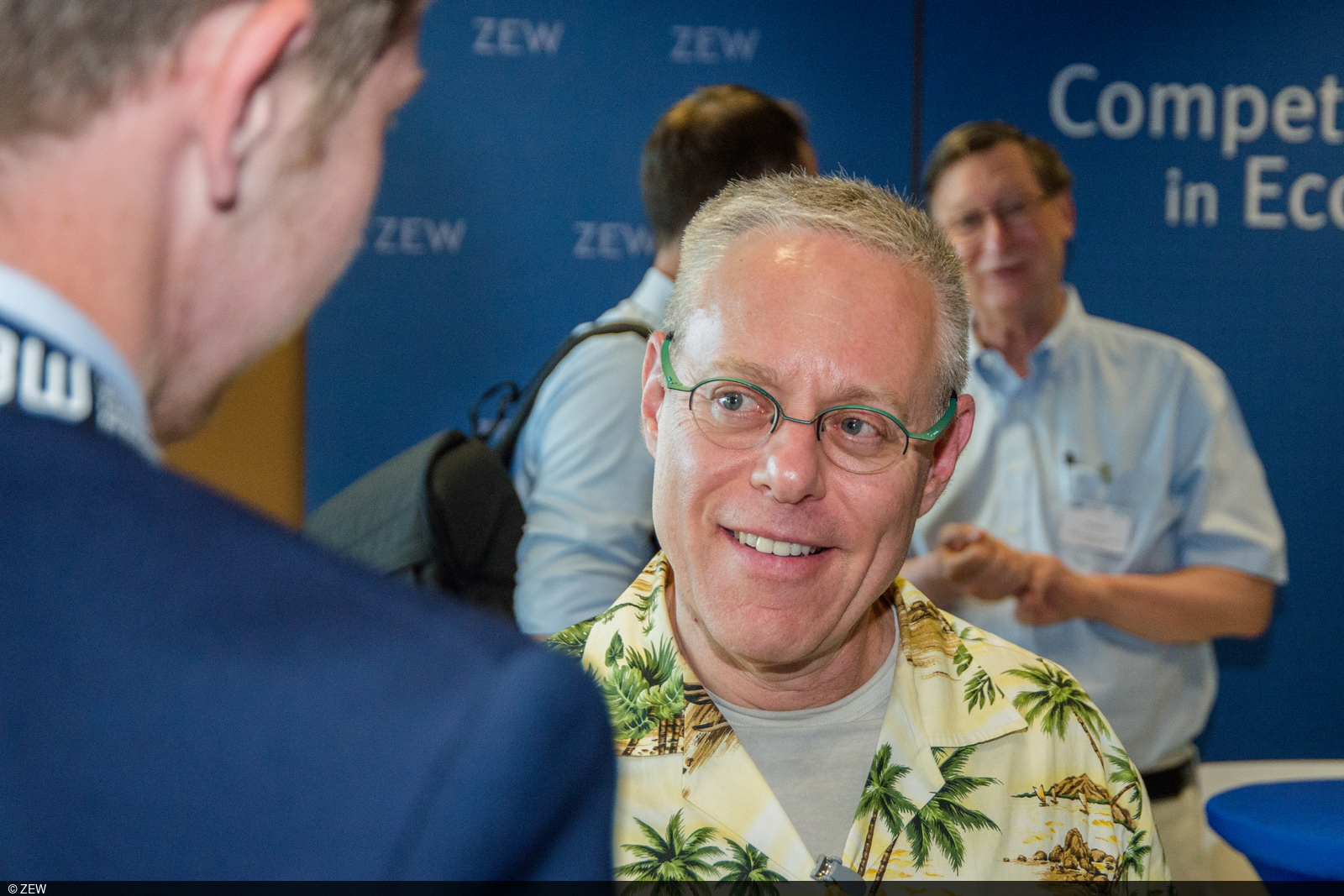First-Hand Information on Economic Policy – How Automation is Changing the Way We Work
Public Events“Over the past 200 years working conditions have changed dramatically and machines have made the daily grind more bearable,” said Professor Hal Varian, chief economist at internet giant Google and professor emeritus at the University of California, Berkeley. In a speech entitled “The Data Economy: Threats and Opportunities” given at the Mannheim-based Centre for European Economic Research (ZEW) on 23 June 2017 as part of the lecture series First-Hand Information on Economic Policy, Varian explained how labour markets should deal with increasing automation now and in years to come.
“The idea that robots are going to take our jobs away is an exaggeration. In the past, robots have primarily taken over individual tasks, not entire job profiles,” Varian told an audience of around 120 guests at ZEW. Since the 1950s there have been 270 professions listed in the US census, only one of which has so far been replaced by automation. While the purpose of individual professions remains the same, their tasks differ: “Automation is not eliminating any jobs as such, rather it is supplanting certain technical and cognitive tasks like doing laundry or adding up numbers.” Furthermore, we are still a long way away from being able to automate certain processes and tasks in a practical way.
“Technology needs time to reach market maturity. Complete automation is just not possible in the near future,” said Google’s chief economist. Such a step is also not economically advisable. In the USA, for example, 21 per cent of total employment is concentrated in just ten professions, such as cashier or retail sales personnel, which are inherently irreplaceable.
“We need stronger growth in productivity worldwide”
The right way to deal with the changes would be to expand the range of tasks falling under each profession while also widening access to a better education for everyone – in particular for people who were previously unable to get good professional training. “We need to do more to promote the development of skills,” said Varian, who advocated looking outside the traditional education system, investing in specialist expertise and above all promoting digital learning.
With the situation in the labour market set to become ever more strained in the future, established ways of thinking in the economy and society need to be challenged. We shouldn’t turn a blind eye to a sinking labour force participation rate, an ageing population and the potential that comes with immigration, but rather make the most of the opportunities these things offer by exploiting the possibilities of a digitalised work environment. “The key to economic growth is the time savings that come with automation. Until now we have underestimated how robots and other forms of automation can improve our productivity,” said Varian as he concluded his speech. “What we need above all is stronger growth in productivity worldwide.”
